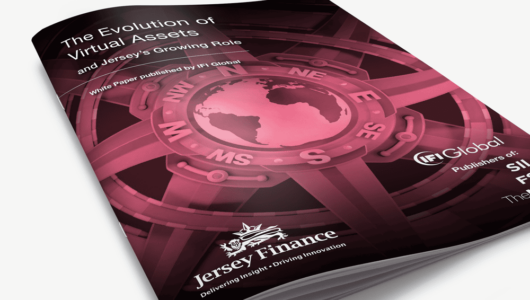How is the digitalisation of real-world assets progressing?
Elliot Refson: The industry is gearing up for the digitalisation of real-world assets – where the rights to assets are tokenised and can be traded digitally – and is investing in knowhow and resources. We are starting to see lawyers establishing digital funds teams and administrators bringing on board digital leads and forming digital committees, for example.
Right now, individual investors hold around half of the $275-295 trillion assets under management globally, according to Bain & Company, but account for just 16 percent of the AUM invested in alternatives. We are looking at this from an alternatives perspective and so we see a lot of room for growth. Further, a Calastone survey published in late 2023 found that the mainstreaming of tokenised assets is fast approaching, with more than two-thirds of US-based asset managers expecting tokenised offerings to be a reality by the end of 2024.
Philip Pirecki: In terms of tokenised real-world assets today, the market is estimated to be $600 billion. While it is already sizeable, it’s complexity makes it difficult for managers and investors to grasp. However, by 2030, Boston Consulting Group predicts a market size of $16 trillion in global tokenised assets under management.
In step with this growth, lawyers and accountants are now establishing dedicated capabilities to address this for clients. This is clearly the operating model for the future and is how managers and structures will evolve. There is a shift underway and the direction of travel seems clear, so it is just a question of how quickly this transition is going to happen.
What are the benefits of digitalisation and what opportunities does it present?
ER: The key benefits of digitalisation are increased liquidity, transparency and efficiency. In terms of opportunities, this opens up a new investor class to managers and a new investment class for investors. In essence, from an investor’s perspective, it democratises private markets and, from a manager’s perspective, allows then to leapfrog the demands of institutional investors and address the less demanding demography of the high net worth retail market.
From a jurisdictional perspective, history shows that jurisdictions must evolve to stay relevant to the investors and managers that they serve, so this creates huge opportunities for fund domiciles such as Jersey. Here in the island, we have always had a forward-looking approach and it is imperative that we apply this here too. We are part of an innovation committee, which has been putting together plans for the digitalisation of real-world assets and our response for some time.
PP: Distribution, reporting and operational efficiencies, which echoes what Elliot said, are the key benefits. There is also a competitive benefit to early adoption. If managers see an edge in changing their approach, the pressure will be on to deliver. Ultimately, this competitive drive will be the catalyst for wider adoption, and utilisation.
The key benefits of digitalisation are increased liquidity, transparency and efficiency. In terms of opportunities, this opens up a new investor class to managers and a new investment class for investors.

Head of Funds, Jersey Finance
What are the main challenges involved?
ER: One of the biggest challenges is a lack of established routes or any form of standardisation around the way in which people can bring these products to market. At the moment, every one of these deals is starting from scratch and working out how to make digitalisation work for the particular assets involved.
Know-your-client requirements are also always going to be a challenge. It becomes very complex if you take, for example, a real estate tokenisation deal, because questions arise over who is actually responsible for the maintenance of the property and linking the ownership of a token to real ownership of the assets. All those issues are yet to be ironed out at scale and need to be addressed on a deal-by-deal basis today.
Managers have a fear of missing out, which is one of the reasons why so many US managers are looking to have products available by the end of this year. There is a lot of pressure to address the challenges in order to access the benefits of this.
PP: Established players, heavily invested in traditional methods, create significant inertia. Competitive pressure will be a key driver for change, but the timing is unclear.
Regulatory uncertainty is also an issue. Jersey’s efforts to provide clear guidance are a significant step forward, but new issues will inevitably arise. Tokenisation streamlines processes, but it also introduces new obligations. Clear guidance is important.
Many of these issues have solutions. Through the act of doing more transactions the technology and structuring is evolving. Analogous to case law perhaps: practical experience paves the way. Each transaction throws up challenges, but solutions become established practices.
What do you see US private equity managers doing to establish deal vehicles in this space?
ER: Survey data from Calastone is pretty compelling on this topic – in addition to 67 percent of US managers expecting to have tokenised offerings available within the next 12 months, a further 22 percent expect it within three years and 11 percent within five years. It is clear that asset managers are bullish about the implementation timelines for this. We have been working on it for a long time behind the scenes and now we are starting to see a lot of concrete work going on.
PP: The vast majority of conversations that we are having in the US are on this topic, so there is no way of escaping this as an emerging priority. I was recently at an event focused on the adoption of artificial intelligence tools, and even that discussion quickly moved onto the digitalisation of real-world assets, so this is clearly front of mind for everyone.
What is driving the trend towards co-investing through digitalisation?
ER: What we see more widely is a global trend towards co-investing so, rather than investing exclusively via fund vehicles, investors are increasingly keen to work with managers and seize co-investment opportunities. Digitalisation can help with that by making co-investment easier and therefore more readily available.
PP: The fact is that the sophistication of allocators grows year by year and their ability to manage vehicles or pursue co-investment opportunities has clearly grown. Digitalisation brings transparency and reporting gains, empowering LPs to leverage their expertise even further. Investors get to tap the managers’ decision-making capabilities and gain additional control over the vehicles and the assets.
What are the implications of tokenisation for fund domiciles and how will jurisdictions need to adapt moving forward?
ER: The first point on this is that jurisdictions that don’t adapt or evolve die out. From Jersey’s perspective, we are talking about the digitalisation of a core part of what we do. We have been doing a lot of work to make sure we publish up-to-date guidance on this, and have published a whitepaper, The Evolution of Virtual Assets and Jersey’s Growing Role, on the topic. This whitepaper details the growing number of virtual assets businesses that Jersey is home to, including a regulated virtual asset exchange and a tokenisation platform involving a Jersey issuer of virtual tokens.
We also have a joined-up approach that includes representatives of industry, government and regulators. We are all working together to make sure we can adequately meet the needs of the managers and investors that we serve going forward.
Jersey is absolutely open for business on the digitalisation of real-world assets. Ten years ago, Jersey was the first jurisdiction to have a bitcoin fund and in 2018, Jersey released guidance notes on initial coin offerings (ICOs). Now, in 2024, we are looking to update that ICO guidance to keep pace with progress.
PP: Tokenisation is a rapidly developing area with risks, and market participants are looking for clear guidance. Jurisdictions that fail to provide this guidance risk falling behind quickly.
The role that AI is going to play in transforming our industry is now well-recognised, and just as the world is trying to figure out the legal protections required around the deployment of those sophisticated tools, the same is happening here. Jersey is keen to be at the forefront of that transition.
Tokenisation is a rapidly developing area with risks, and market participants are looking for clear guidance

Jersey Finance Lead in the Americas
This interview was published in Private Equity International’s ‘Future of Private Equity’ report.

